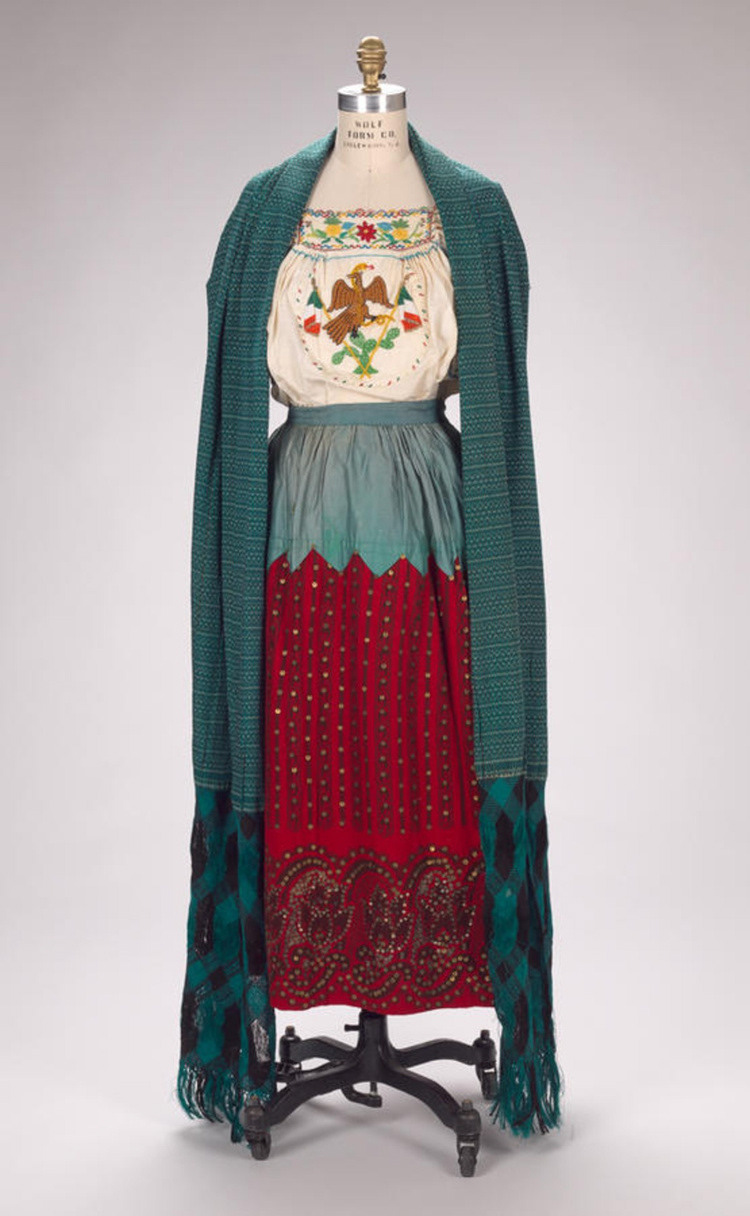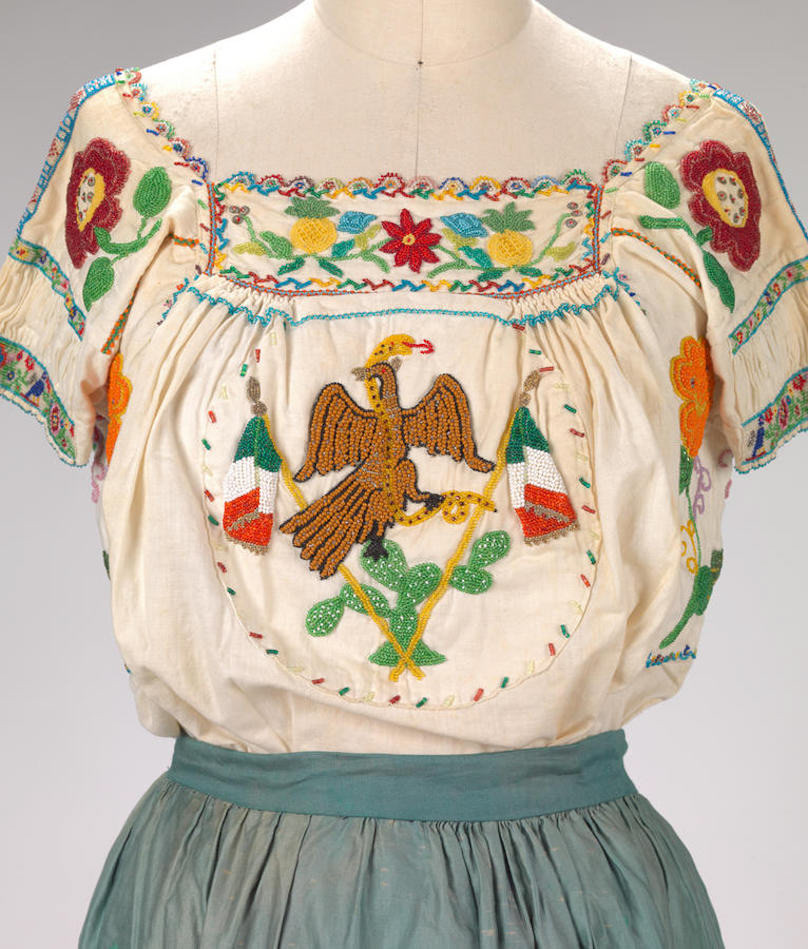
China Poblana (blouse, skirt, and shawl, Mexico), ca. 1925. Gift of Barbara White Dailey. All images courtesy of the RISD Museum, Providence, RI.
Excerpt from short historical fiction, Desde La Chinaca a La China Poblana, by Ariel Wills:
A white, embroidered blouse, a full, red skirt adorned with sequins, and a deep blue rebozo.
Worn together in this chorus, we are the wardrobe of La China Poblana. Today we are a costume for folk dancing in, to don with pride for a national celebration, but once we were looked down upon with disdain. In Quechua, la chinaca means the servant—but who was she? She began as the mestizaje woman who lived in the village by her own rules, marked by confidence, independence, and her distinguished role in her pueblo. She was met with fascination by Spanish women, who observed her from afar, without humanity: not as a person, but as an emblem of the heritage and glamour of the colony. They both revered and distrusted her. Society stripped her of her identity, and conveniently molded her into a pious emblem of national pride. Today we will share with you the story of a woman known to carry a machete, a national icon, adopted as a symbol of Mexico and the Revolution. Join us as we introduce each part of ourself. Every wardrobe tells a story...
Worn together in this chorus, we are the wardrobe of La China Poblana. Today we are a costume for folk dancing in, to don with pride for a national celebration, but once we were looked down upon with disdain. In Quechua, la chinaca means the servant—but who was she? She began as the mestizaje woman who lived in the village by her own rules, marked by confidence, independence, and her distinguished role in her pueblo. She was met with fascination by Spanish women, who observed her from afar, without humanity: not as a person, but as an emblem of the heritage and glamour of the colony. They both revered and distrusted her. Society stripped her of her identity, and conveniently molded her into a pious emblem of national pride. Today we will share with you the story of a woman known to carry a machete, a national icon, adopted as a symbol of Mexico and the Revolution. Join us as we introduce each part of ourself. Every wardrobe tells a story...
Complete story can be found at https://volume-1.org/Desde-La-Chinaca-a-La-China-Poblana

China Poblana (blouse, skirt, and shawl, Mexico), ca. 1925. Gift of Barbara White Dailey. All images courtesy of the RISD Museum, Providence, RI.

China Poblana (blouse, skirt, and shawl, Mexico), ca. 1925. Gift of Barbara White Dailey. All images courtesy of the RISD Museum, Providence, RI.

China Poblana (blouse, skirt, and shawl, Mexico), ca. 1925. Gift of Barbara White Dailey. All images courtesy of the RISD Museum, Providence, RI.


